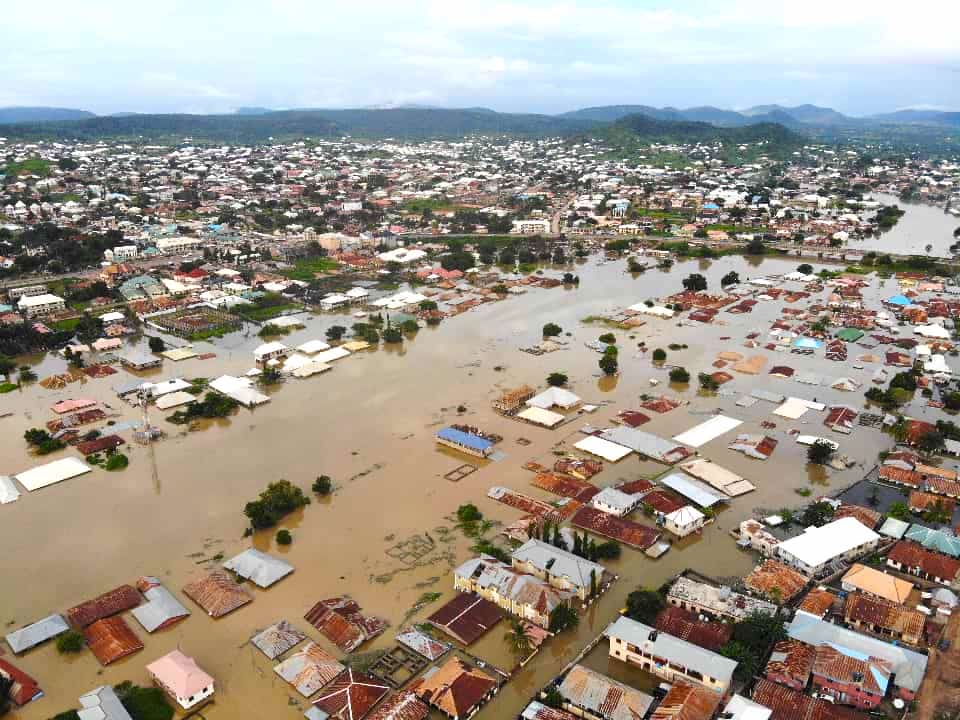
NSE URGES FG TO CONSIDER BUILDING MORE DAM TO CURB FLOOD
In response to the recent floods that would probably be caused by the discharge of the Lagdo dam in Cameroon, the Nigeria Society of Engineers has encouraged the Federal Government to take into consideration building new dams along the River Niger and River Benue.
In some places, flooding has turned into a persistent issue, and the NSE thinks that building more dams can effectively lessen the effects of floods.
Tasiu Gidari-Wudil, the NSE president, made the announcement during a news conference on Monday in Abuja.
According to an earlier source, the Federal Ministry of Foreign Affairs’ Director of African Affairs, Umar Salisu, stated in a letter dated August 21, 2023, that the ministry had received information regarding the dam’s opening from the High Commission of Cameroon.
The letter, which was addressed to the National Emergency Management Agency, read in part, “I have the honour to inform that the ministry is in receipt of a Note Verbale from the High Commission of the Republic of Cameroon informing that Cameroonian officials have resolved to open the flood gates of the Lagdo Dam on the Benue River in days ahead due to the heavy rainfall around the dam catchment area in Northern Cameroon.”
Speaking at the event, Gidari-Wudil noted that construction of the dam should be a priority while also calling for the dredging of major rivers to reduce siltation and sedimentation.
He said,”Floods are among the most devastating natural disasters in the world, claiming lives and causing damage to properties and infrastructure.
”In Nigeria, flood affects and displaces more people than any other disaster every year.
“After the 2012 flooding incident, several committees were set up by governments at the federal level and the respective states affected by the flood.
”Also in November 2022, the Federal Government inaugurated a Presidential Committee on flood disasters. The mandate of the committees was to conduct research and develop comprehensive action plans for preventing flood disasters in Nigeria.
”As it stands today, the recommendations of studies conducted by the committees are yet to be fully implemented.”
He also urged the government to enforce current laws and pass new ones to safeguard the environment from human activity, including that caused by urbanisation, industrialization, and climate change.
Gidari-Wudil blamed the involvement of the private sector for the country’s ongoing building failures, accusing them of undercutting building standards by using unskilled labourers in the construction process.
He added, “If you take the statistics of building collapse in the country in the last 20 years, government buildings involved in collapse is just 10 per cent, it is private sectors that are compromising.
”That is why government projects are more expensive because they make use of professionals but in private projects, the prices are usually beaten down and as such will employ the services of someone who is not an engineer. In all building collapses in this country, only a few of these incidences involve our members and once we know, they are sanctioned.
”For example, in the Ikoyi building collapse, about three engineering companies worked out on that project. At NSE, we usually investigate all engineering failures and that is the way to go,” he said.
The NSE director said President Bola Tinubu appointed three engineers in his ministerial portfolios, adding that the figure was egregiously insufficient given that there were eight ministries with an engineering focus.
He also urged Tinubu to consider increasing the number, stating, “We hold the strong conviction that only engineers will function optimally in engineering ministries.”
Speaking about the elimination of petroleum subsidies, he claimed that despite widespread societal support, sufficient safeguards were not put in place to lessen the impact on Nigerians. The NSE president added that the organisation had partnered with the Federal Government’s National Digital Economy Policy and Strategy in order to create an innovation hub that would one day become Nigeria’s “Silicon Valley.”
“As the world progresses into the era of the 4th Industrial Revolution (4IR), we have envisioned the NSE Smart Innovation Hub as a catalyst for a digital Nigeria, aligning with the federal government’s National Digital Economy Policy and Strategy.
”Realising that a SMART office project is a growing concern that requires time and continuous improvement, I have set up a trustee to undertake all it takes to bring the project to full attainment.
”However, I am happy to announce to you that we have reached an appreciable stage and by the grace of God, the ‘NSE SMART INNOVATION HUB’ will be officially launched on Wednesday, September 13, 2023,” he said.
He continued, saying that the hub would be a model to have a beneficial impact on the economic and technological development of the nation and that it would work as a centre for research and development on technology and innovation concerns as well as for strengthening the business.
He added that it would also have a lab for artificial intelligence, the internet of things, automation, and engineering, as well as an e-library and virtual and physical offices.
![]()
